Further Intensification in the Ukraine-Russia Conflict
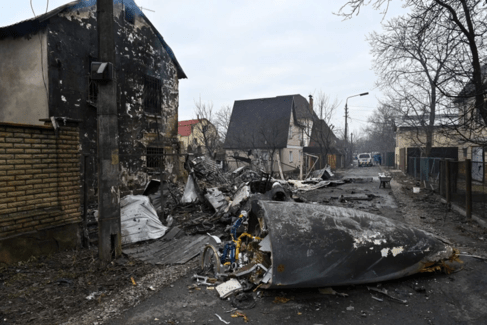
Source: https://nypost.com/2022/02/24/russia-putin-launches-invasion-of-ukraine/
In President Vladimir Putin's invasion of Ukraine, Russia has moved to a new strategy of bombarding civilian areas to demoralise the Ukrainian military in its newest escalation. To the north, Ukrainian defence forces are hanging on to Kyiv and Kharkiv. However, after a week of fierce warfare, the city of Kherson in the south has fallen under Russian control. As of 4th March 2022, there have been reports of a fire at the Zaporizhzhia power plant - Ukraine and Europe's largest nuclear power facility of its kind.
The Russian invasion of Ukraine has undoubtedly been one of the most aggressive attempts to redefine borders in Eastern Europe since the end of the Cold War in 1989. More than 830,000 displaced persons have entered the neighbouring states of Poland, Slovakia and Romania. Therefore, the European Union has agreed to chart a temporary protection plan for the refugees, including the right to live in the EU for three years and the establishment of a humanitarian hub in Romania. Amid new sanctions by the United States and the United Kingdom, Ukrainian and Russian negotiators have also met in Belarus for the second round of talks on humanitarian issues, including developing humanitarian corridors.
By Aishwarya Nagar - Batch 20-22
Diplomatic-multilateral engagements on Ukraine Crisis
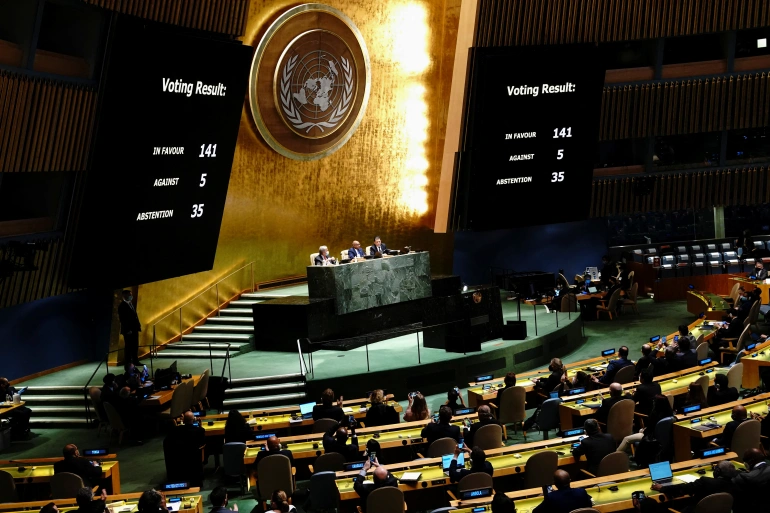
Source: https://www.aljazeera.com/news/2022/3/3/unga-resolution-against-ukraine-invasion-full-text
Amid Russian-Ukrainian tensions, the North Atlantic Treaty Organisation (NATO) will be activating its launch of Rapid Response Force, deploying 22,000 troops to member countries bordering the crisis region in eastern Europe in addition to the troops already deployed. They have also made it clear that no troops will be sent to Ukraine to intervene militarily. Though increased weapons delivery to Ukraine urgently is still on by all other European Union states. NATO foreign ministers set to hold an emergency meeting in Brussels on 4 March 2022.
On 28 February 2022, United Nations General Assembly held an Emergency Special Session, the first in 40 years, to discuss the Ukrainian crisis. Russia's military attack was severely criticised, while Switzerland also shifted from its traditionally neutral position and spoke of imposing sanctions on Russia. Later, on 2 March 2022, in UN Human Rights Council, almost 100 diplomats from 40 countries walked out during the Russian Foreign Minister's speech to protest the invasion.
India maintained its neutral stance on the building crisis and reiterated the need to return to the path of dialogue and diplomatic solution to the dispute. India has abstained from voting against Russia at three instances at United Nations in the last week. The virtual Quad meeting held on 3 March 2022 ended with no direct condemnation of Moscow's actions, given India's stance. However, Quad leaders agreed that similar events should not be allowed to happen in the Indo-pacific region.
Meanwhile, multiple financial and trade sanctions have been imposed on Russian oligarchs and banks by the US, UK and EU. Germany has also put the Nord Stream 2 gas pipeline on hold. After a 90 minutes phone call with Russian President Vladimir Putin, French President Emmanuel Macron said "worst is yet to come" in Ukraine.
By Aarushi Gupta - Batch 20-22
Syrian Crisis blindsided by Ukraine's Invasion
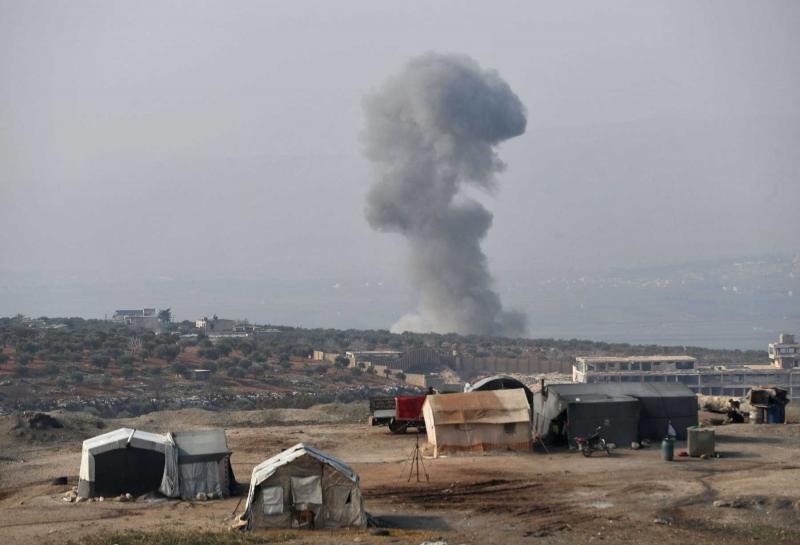
Al-Arshani water station, after it was reportedly hit by a Russian airstrike on January 2, 2022.
Source: https://thearabweekly.com/sites/default/files/styles/article_image_800x450_/public/2022-01/2022-01-03_14-28-02_818183.jpg?itok=ACSRwEWv
Eleven years after the Syrians first demonstrated against the four-decade rule of the Assad family, the country remains locked in a grinding prolonged crisis, and a political settlement remains far out of reach. The regional powers have backed various local forces to advance their geopolitical interests on Syrian battlefields. The United States is at the forefront of a coalition conducting air strikes on the self-proclaimed Islamic State. President Vladimir Putin's government has been a major ally of Syrian President Bashar al-Assad. Russia and Israel have carried out series of air strikes in Syria, throughout January and February 2022.
While the world remained shaken by Russia's invasion of Ukraine, Syria remains unseen and unheard. The Syria crisis response stands at a crossroads. Donor governments and aid actors have been at pains to develop strategies to match new paradigms in Syria. The opaqueness of the Biden administration's Syria policy in 2021, a touted gas deal between Lebanon, Syria, Jordan, and Egypt, and diplomatic manoeuvres by some Arab states, have led to Syria remaining largely isolated from the outside world due to sanctions and its economy is in the doldrums with little opportunity for significant outside investment or reconstruction funding.
By Rithika Thammaiah C - Batch 20-22
Security Council imposes arms embargo on 'all' Houthi rebels
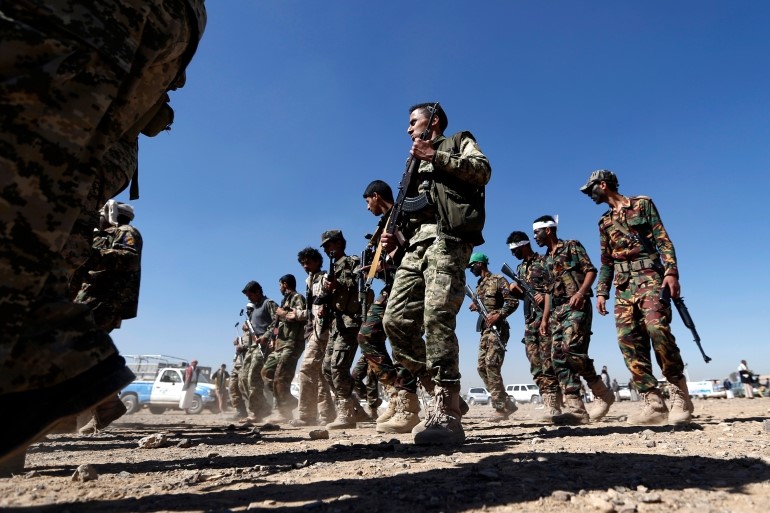
In the latest move, the United Nations Security Council has imposed an arms embargo on the Houthi rebels in Yemen after the group stands in the face of increased international pressure after the alleged attacks on Gulf countries like UAE and Saudi Arabia. UAE has put forward the latest resolution. The Security Council has adopted the resolution with eleven votes and four abstentions. The latest move comes days after U.S President Joe Biden imposed sanctions on a network funding the rebel group with millions of U.S dollars.
The leader of the Houthi revolutionary committee, Mohammed Ali al-Houthi, criticized the decision of the Security Council alleging that the Council has ignored the crimes conducted by the coalition forces. The anonymity of the position by various countries also came under increased scrutiny after Russia's position on the resolution. It has been said that Russia and UAE had a deal for the latter to abstain from the resolution after UAE refrained from condemning Russia's action in invading Ukraine in the latest UNSC draft resolution.
By Anirban Dutta - Batch 20-22
IPCC Report February 2022: An assessment of climate hazards
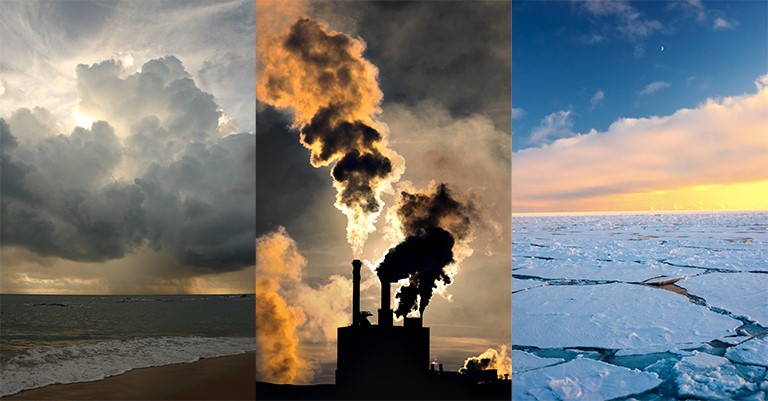
Source: https://climate.nasa.gov/system/content_pages/main_images/1321_cc-vs-gw-vs-wx-768px.jpg
According to the report published on Monday by the Intergovernmental Panel on Climate Change (IPCC), the world will face multiple climate hazards in the coming decades with the rise in temperature of 1.5 degrees C exceeding the warming level, which will lead to some irreversible severe impacts. It states that due to high temperature, the global sea levels are likely to rise by 44-76 cm this century in condition to cutting down the coal emissions worldwide. If the emissions are high, the ice sheets will collapse and create a risk of sea level rising up to 2m by this century.
If the global temperature overshoots the 1.5 degrees C threshold, it will lead to a high risk for the biodiversity. It will impact the seagrass, warm-water coral reefs, terrestrial ecosystems and Arctic sea ice. Further acceleration of rise in sea level will cause coastal ecosystem to submerge. The climate crisis has impacted the people's health mentally and physically. The extreme heat waves have affected human mortality and morbidity worldwide. The IPCC has also pointed out the emergence of water-borne diseases due to high temperatures, floods, droughts and other natural calamities. The report mentions that these natural disasters are also the underlying causes for food and water security in Africa, Asia and Artic region. Zoonoses, animal and human diseases are emerging in some parts of the world due to climate change.
The report underlines the difference between ecosystem in various regions by stating that it is mainly due to socio-economic parameters, uncontrolled and unsustainable usage of land and seas, marginalization and historical trajectory. It reiterates that delay in anticipating global action and risk mitigation will lead to missing out an opportunity to secure a sustainable future for all.
By Priyanka Rane - Batch 20-22
The scramble for safety during the Russian invasion of Ukraine unveil racism among the people
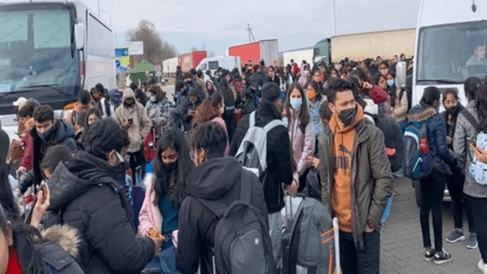
Ukraine-Russia conflict exposes western media and Europe's racist attitude.
Source: https://www.newsx.com/world/ukraine-russia-conflict-exposes-western-media-and-europes-racist-attitude.html
According to the United Nations, more than 600,000 civilians are attempting to flee Ukraine amidst the Russian invasion. The refugees are making their way to the western neighboring countries of Poland, Romania, Slovakia, Hungary and Moldova. In lieu of the scramble for safety one can witness issues of segregation and discrimination amongst the Ukrainian and Non-Ukrainian civilians.
Korrinesky, an African refugee posted on her Instagram highlighting that they have been stuck at the Romanian border Control for more than 12 hours. She further mentions that a hierarchy has been created amongst the refugees to avail the transport services to flee the country through the borders. The white Ukrainians are given more preference followed by the Indians and then the Africans.
The refugees are battling the cold weather while waiting in long queues at border points and transport stations. Consequently, violence amongst the stranded refugees has been increasing. Incidents have been reported where the Ukrainians are blocking the browns and the blacks from getting in the trains or dragging them off the busses.
Display of prejudice against the foreign students is prevalent on the Ukrainian border control where officials are telling the foreigners to stay back and allowing the Ukrainians to pass first. Videos show a Ukrainian security officer kicking the Indian students at the border crossing who are escaping the war.
By Nikita Varghese - Batch 20-22